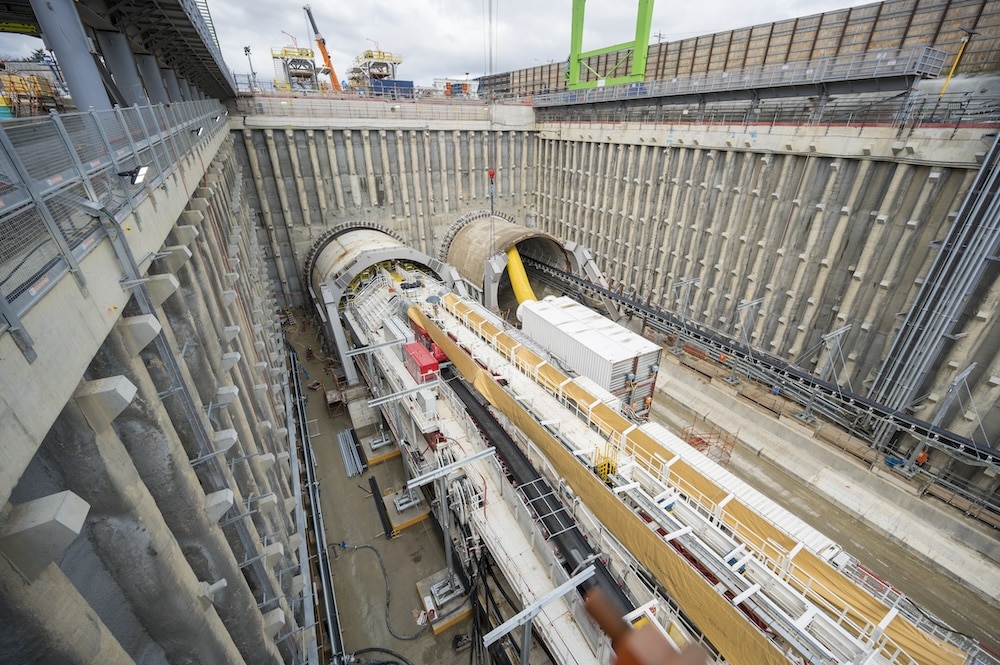
Alan Swaby talks to Brent Thompson, senior vice president of the Mining & Minerals practice of a global based engineering business that puts almost as much effort into differentiating itself from the opposition as it does on the engineering itself.
Finding a point of difference between yourself and the competition is the aim of every business manager. But despite what we like to think, it’s more easily said than done, especially in the service sector. Coca-Cola and KFC might have their secret ingredients but if you are designing a bridge, one engineer will use exactly the same formulae as another. Nevertheless, this urge to differentiate becomes even greater when you are slugging it out with a host of other competitive suppliers in the middle ranks of any business sector.
This is the situation that Wardrop, a Tetra Tech Company, a Canadian subsidiary of Tetra Tech, finds itself in. Established for over half a century, Brent Thompson, senior vice president of the Mining & Minerals division describes the business as a mid tier supplier of consultancy and EPCM services. It’s the type of firm that mining companies need to help them raise capital in order to develop the reserves they have and once that’s been achieved, to represent the client’s interests during construction.
Here then, is the first point of difference. “Stock exchanges have their own reporting systems,” Thompson explains, “against which mining companies provide information about mineral discoveries in a way that enables potential investors to assess the risk of getting involved in a consistent and dependable degree of confidence. But there are liabilities involved with the verification of this data and not every consultancy wants to expose themselves to risk, however unlikely that might be.”
The Mining & Minerals division conducts studies compliant with NI 43-101, AIM and JORC standards. Doing this means having a highly qualified team of professionals, conversant with all manner of studies whether they be initial property assessments, due diligence, scoping studies or NI 43-101 compliant pre-feasibility and feasibility studies. It means visiting the mining site and working with drilling contractors and geologists to satisfy themselves of the validity of the data. And above all it needs tight internal controls that provide the discipline against which all Tetra Tech staff are expected to perform.
Tetra Tech is a multi-faceted engineering business with revenue of $2.2 billion in 2010 of which mining & minerals accounts for approximately ten percent, its other interests being water, infrastructure, energy and environment. Mining & minerals accounts for around two thirds of revenue in the Wardrop subsidiary, which the California based Tetra Tech acquired in 2009. With the backing of Tetra Tech, the subsidiary is also developing its overseas activities to the point where a third of business is now international.
“Despite the market being incredibly volatile,” says Thompson, “we have shown strong growth over the past five years. Most of the time the emphasis is on consultancy and studies but when capital is tight and exploration goes quiet, we have the option of putting on our engineering hat and helping clients increase production at existing sites. But not just in a reactive way. We like to think that our approach adds value over and above the engineering itself.”
Enter points of difference two and three. Not only does the mining division have wide ranging skills that can be applied either before or after the green light goes on, clients tell Tetra Tech that it operates in a most distinctive fashion.
“When a project starts,” Thompson explains, “we create a war room where senior staff from both sides come together and take the project apart, line by line. Every previous assumption or idea is challenged and has to withstand the closest scrutiny. It’s always gratifying to see how technical people feed off each other’s thoughts and ideas in a way which invariably leads to a better solution.”
Adding value may mean that the plant goes on stream earlier than it otherwise might have done or may use less energy or water. Either way, Tetra Tech likes to think it adds more than just the engineering, procurement and construction management services that EPCM implies.
“All the easy-to-get-at minerals have long been discovered,” says Thompson, “so locations are becoming more and more remote, usually in areas distant to any formal infrastructure. In those places, utility savings of any kind have an increasing impact as the years progress. We’re already seeing more energy and water efficient technology coming on stream and this growth will only get stronger.”
While these are positive measures, Thompson is not slow to point out a debilitating weakness in the western capitalist model. “Every time there is a report in the media about market volatility, the difficulty of obtaining capital ratchets up a notch. We are currently doing a lot of work with the Chinese and it’s clear they have completely different time scales to the west. Here we want to see profitability maximized next quarter, while eastern patience is happy to see profit come more slowly.”
Thompson is thinking particularly of Yukon Zinc, a project built and financed by the Chinese and started when demand for zinc was at rock bottom. By taking a longer view, and realizing that the demand was bound to bounce back, construction of the mine went ahead and contractors took advantage of lower costs.
Now, with a number of collaborative ventures with Chinese contractors under its belt, Tetra Tech has established close working relationships and is something of an authority on how best to work across the cultural chasm. It’s a link which is also proving beneficial to mining companies as a source of capital thanks to China’s insatiable demand for minerals and its willingness to acquire or invest.
One final ingredient in the USP formula: “We’re not afraid to ask clients what they think of us,” says Thompson. “At the end of every contract – and more frequently if it is a longer job – we ask clients for feedback on how we have performed and which, if any, of our procedures could be done better. It’s occasionally uncomfortable for individuals but collectively it is very good for the business.”
DOWNLOAD
 Wardrop_SEPT11_NA_BROCH_w.pdf
Wardrop_SEPT11_NA_BROCH_w.pdf













